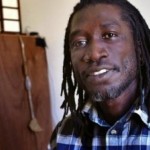Pennsylvania Gay Marriage Ban Overturned
 Today it was Pennsylvania. Yesterday it was Oregon. Altogether seventeen states and the District of Columbia allow gay marriage. Federal or state judges in Idaho, Oklahoma, Virginia, Michigan, Texas, Utah and Arkansas recently have found state same-sex marriage bans to be unconstitutional. Judges also have ordered Kentucky, Ohio and Tennessee to recognize same-sex marriages from other states.
Today it was Pennsylvania. Yesterday it was Oregon. Altogether seventeen states and the District of Columbia allow gay marriage. Federal or state judges in Idaho, Oklahoma, Virginia, Michigan, Texas, Utah and Arkansas recently have found state same-sex marriage bans to be unconstitutional. Judges also have ordered Kentucky, Ohio and Tennessee to recognize same-sex marriages from other states.
A federal judge declared Pennsylvania’s ban on gay marriage unconstitutional Tuesday, saying its “time to discard them into the ash heap of history.”
The ruling by Judge John E. Jones III would make Pennsylvania the last Northeast state to allow same-sex marriages, although the state could challenge the decision before the 3rd U.S. Circuit Court of Appeals.
Several couples sued the state in July for the right to marry in Pennsylvania or to have their out-of-state same-sex marriages recognized. A 1996 state law defines marriage as a union between a man and a woman.
“Plaintiffs suffer a multitude of daily harms, for instance in the area of child-rearing, healthcare, taxation and end-of–life planning,” Jones said in his 39-page written opinion.
He called the couples who brought the case “courageous” and said his ruling brings the court in line with “12 federal district courts across the country which, when confronted with these inequities in their own states, have concluded that all couples deserve equal dignity in the realm of civil marriage.”
The state’s Democratic attorney general, Kathleen Kane, had declined to defend the law in court. GOP Gov. Tom Corbett took up the case, however, with lawyers for his administration arguing that states have the right to determine the definition of marriage.
On Monday, a federal judge in Oregon overturned Oregon’s ban on same-sex marriage. State officials there declined to defend a ban, citing last year’s U.S. Supreme Court ruling that tossed out key parts of the federal Defense of Marriage Act.
Judges have tossed out similar bans in a half dozen states since the Supreme Court decision.
The Pennsylvania lawsuit, filed by the state American Civil Liberties Union, claimed the state’s own Defense of Marriage Act and its refusal to marry lesbian and gay couples or recognize their out-of-state marriages violates the fundamental right to marry — and, by discriminating based on sexual orientation, the Equal Protection Clause of the Fourteenth Amendment.
The ACLU scheduled rallies across the state regardless of the ruling. The decision means those rallies will be celebrations.
Jones concluded his opinion by noting that in the 60 years since Brown v. Board of Education challenged the premise of separate but equal, “‘separate’ has thankfully faded into history and only ‘equal’ remains.”
He said the term “same-sex marriage” will be abandoned in favor of “marriage” someday.
“We are a better people than what these laws represent,” Jones wrote. “It is time to discard them into the ash heap of history.”
Idaho’s Marriage Ban Struck Down By Federal Judge
 Federal Judge Candy Dale has ruled that Idaho’s ban on same-sex marriage is unconstitutional.
Federal Judge Candy Dale has ruled that Idaho’s ban on same-sex marriage is unconstitutional.
The judge sided with four Idaho couples who had filed a lawsuit against the state and the article of the Idaho Constitution that says the state only recognizes marriage as being between a man and a woman.
The judge says Idaho’s marriage laws violate the couples’ rights under the Due Process and Equal Protection Clauses of the Fourteenth Amendment of the United States Constitution.
In her decision, Judge Dale says “The Plaintiffs are entitled to extraordinary remedies because of their extraordinary injuries. Idaho’s Marriage Laws withhold from them a profound and personal choice, one that most can take for granted. By doing so, Idaho’s Marriage Laws deny same-sex couples the economic, practical, emotional, and spiritual benefits of marriage, relegating each couple to a stigmatized, second-class status. Plaintiffs suffer these injuries not because they are unqualified to marry, start a family, or grow old together, but because of who they are and whom they love.”
She goes on to say that the state offered no evidence that same-sex marriage would adversely affect opposite-sex marriage or the well-being of children.
She further states that as of Friday morning, and if a higher court doesn’t intervene, any laws that refuse to recognize marriages from other states or same-sex marriages in the State of Idaho are not enforceable.
As of Friday at 9 a.m., same-sex couples could be allowed to get marriage licenses. A higher federal court, such as the 9th Circuit Court of Appeals or the United States Supreme Court could intervene before then and stop it from happening, however.
Idaho’s governor has told a federal judge that, if she strikes down the state’s six-year-old ban on same-sex marriage, state officials may ask the Supreme Court to take on the issue immediately, without waiting for an appeal through the U.S. Court of Appeals for the Ninth Circuit. Lawyers for Governor C.L. “Butch” Otter laid out that alternative in a plea on Monday for an order — now, before any ruling is made – to postpone such a decision to allow an appeal to go ahead.
The motion made three main arguments for a “contingent” delay order: first, the Supreme Court has already signaled that it does not want any same-sex marriages to occur until it can give “an authoritative ruling” on the issue; second, the Supreme Court also has indicated that it intends to grant review of the issue; and, third, there has been “chaos, confusion, conflict, uncertainty,” and new court fights in states where a court has nullified a ban but same-sex marriages were temporarily allowed before a stay was granted.
The Idaho case is one of more than seventy lawsuits filed in federal and state courts across the country. Federal law and court rules say, Judge Candy’s decision is final at the trial level, and any appeal will go to the Ninth Circuit Court and then on, potentially, to the Supreme Court.
Late last year, Utah’s ban on same-sex marriage was also struck down by a federal judge, but 17 days later the U.S. Supreme Court intervened and reinstated the ban pending appeals. More than 1000 marriage licenses had been issued before the court issued the stay.
Governor Otter responded to the ruling Tuesday evening:
“In 2006, the people of Idaho exercised their fundamental right, reaffirming that marriage is the union of a man and a woman. Today’s decision, while disappointing, is a small setback in a long-term battle that will end at the U.S. Supreme Court. I am firmly committed to upholding the will of the people and defending our Constitution.”
Prominent Ugandan LGBT Activist Applies For Asylum In U.S.
 Ugandan LGBT rights advocate John Abdallah Wambere has applied for asylum in the United States, citing an environment of fear, persecution and state-sponsored violence against homosexuals in his home country.
Ugandan LGBT rights advocate John Abdallah Wambere has applied for asylum in the United States, citing an environment of fear, persecution and state-sponsored violence against homosexuals in his home country.
Wambere is known for his work with Spectrum Uganda Initiatives, an organization that advocates for LGBT rights and provides health and education services.
On May 6, he announced his intent to seek asylum at a press conference in Boston. Wambere currently resides in Cambridge, Mass.
According to a statement in support of his asylum application, Wambere says he left Uganda for the U.S. on Feb. 20, and at that time he planned to return home at the end of his visit.
Then, on Feb. 24, Ugandan President Yoweri Museveni signed the “Anti-Homosexuality Act”, a new law that criminalized not only homosexuality, but also the “aiding and abetting of homosexuality,” and “promoting homosexuality.”
Those convicted under the new law can expect to face sentences of up to 14 years in prison for a first-time offense, and up to life in prison for the offense of “aggravated homosexuality.”
“I have nowhere to go. Home is not safe, and it’s not even a place I would want to think about.”, Wambere said.
Although LGBT status has been considered grounds for asylum in the U.S. since 1994, winning refugee status can be difficult, particularly for those who were unable to obtain a visa to the U.S. before applying. Wambere said he fears that returning to Uganda could expose him to physical violence, life imprisonment or even the possibility of death.
Wambere’s U.S. visa expired last week, but he will be allowed to remain in the country while awaiting a decision on his asylum application.
Indiana Judge Hears Arguments Challenging Same-Sex Marriage Ban
 The state of Indiana must recognize a gay couple’s out-of-state marriage for at least a few more days as a federal judge considers whether to extend an April order requiring the state to acknowledge the union.
The state of Indiana must recognize a gay couple’s out-of-state marriage for at least a few more days as a federal judge considers whether to extend an April order requiring the state to acknowledge the union.
On Friday in Evansville, Indiana, U.S. District Judge Richard Young heard arguments requesting that the state recognize the 2013 Massachusetts marriage of Niki Quasney and Amy Sandler of Munster. Quasney is terminally ill with advanced ovarian cancer, and the couple fear that Sandler won’t be able to collect Social Security and other death benefits if their marriage isn’t recognized.
Young granted the couple a temporary order recognizing their marriage last month, however, that order expires next Thursday.
Lawyer representing the state of Indiana say there are other legal ways for Sandler to obtain property benefits after Quasney dies.
Indiana law defines marriage as between one man and one woman, and the state refuses to recognize same-sex marriages or civil unions conducted in other states.
On Friday, Indiana Solicitor General Thomas M. Fisher noted that the law does not allow for a hardship exception, but he said a death certificate could be amended at a later date.
Quasney and Sandler have been together 13 years and were married last year in Massachusetts, one of 17 states where gay marriage is legal. They have two young daughters.
Staff attorney for Lambda Legal, Paul Castillo, said that “Indiana has no justification whatsoever for denying them dignity and respect as a family during this extremely difficult time,” but also noted that there are thousands of same-sex couples in Indiana who deserve legal recognition as well.
Quasney said that she and Sandler aren’t seeking special privileges. “We should have the same freedoms as other married Indiana couples,” she said.
Alabama Lesbian Couple Fights For Marriage Recognition
 A lesbian couple residing in Alabama filed a federal lawsuit Wednesday that would force the state to recognize their out-of-state marriage, allowing both women to be legal parents to their 8-year-old son.
A lesbian couple residing in Alabama filed a federal lawsuit Wednesday that would force the state to recognize their out-of-state marriage, allowing both women to be legal parents to their 8-year-old son.
The couple’s suit contends that Alabama’s ban on same-sex marriage, as well as their refusal to recognize same-sex marriages from another state violates the equal protection clause of the U.S. Constitution.
The plaintiffs, Cari Searcy and Kimberly McKeand, have been in a relationship for more than 14 years, and they have lived in Mobile since 2001. In 2008, they traveled to California to be married there after winning a contest run by the San Diego Convention and Visitors Bureau.
McKeand gave birth to a son, Khaya, in 2005. He was conceived with the help of a sperm donor. However, the couple’s bid to have Searcy declared Khaya’s adoptive parent was rejected in the state court system because Alabama does not recognize the couple as spouses.
“I am a parent in every way to our son, but legally I am still considered a stranger,” said Searcy. “We just want our son to have the same protections and securities as other Alabama families.”
“As attorney general, I will vigorously defend the traditional definition of marriage as between one man and one woman,” Strange said. “That has been the definition of marriage for the history of western civilization, and Alabamians overwhelmingly voted to incorporate it into our laws.”
Alabama is one of 30 states that have passed a constitutional amendment that defines marriage as a union between one man and one woman. Alabama’s amendment further states specifies that the state will not recognize any same-sex marriage performed in any other jurisdiction.
David Kennedy, an attorney for the couple, said the result of the law is that Khaya, although he was raised since birth in a two-parent family, “is not allowed the same legal benefits and protections that any other child would receive in Alabama because he has two moms.”
The lawsuit is one of the most recent in a nationwide groundswell of lawsuits that have been filed on behalf of gay and lesbian couples in the 33 states which do not allow same-sex marriage. Advocacy groups say that more than 70 lawsuits are currently pending, including several in which federal judges have struck down state bans.
Pennsylvania Urges Judge to Dismiss Death Tax Lawsuit Brought by Lesbian Widow
 Pennsylvania is asking a county judge to dismiss an inheritance tax lawsuit brought against the state by a lesbian widow.
Pennsylvania is asking a county judge to dismiss an inheritance tax lawsuit brought against the state by a lesbian widow.
Last October, Barbara Baus sued the commonwealth after receiving an inheritance tax bill for nearly $11,000 following her wife’s death from leukemia. Baus and Burgi-Rio were married in Connecticut in 2011.
According to Pennsylvania law, spouses are not subject to inheritance tax. However, the state does not recognize their marriage, and Baus was charged a 15 percent inheritance tax.
Baus argues the state is violating the U.S. Constitution by recognizing some marriages and not others.
During oral arguments on Tuesday, the attorney representing the state of Pennsylvania, Thomas Gohsler , asked the judge to dismiss the case. He said that at its core, the case is not about constitutional rights or gay marriage and belongs before a review board, not a judge.
The judge indicated that he may not make a decision until he sees how Pennsylvania’s other pending marriage equality lawsuits are resolved.
Ugandan Anti-Gay Preacher Accused of “Promoting Homosexuality” In Turn of Events That Shocks No One
 Rabid anti-gay Pastor Martin Ssempa has been accused of promoting homosexual behavior in his home country of Uganda.
Rabid anti-gay Pastor Martin Ssempa has been accused of promoting homosexual behavior in his home country of Uganda.
Writer Paul Kaliisa claims Ssempa spreads “gayism” through his lectures and gay porn screenings at churches in an article for Uganda’s First Class Magazine. Under the African nation’s Anti-Homosexuality Act, which was signed into law about two months ago, Ssempa could possibly get jail time for the alleged crime of encouraging homosexual behavior — precisely what he claims to advocate against.
Kaliisa’s harshly worded article reads, in part:
[Ssempa] has on a number of occasions showed gay porn to members of the congregation on a projector. He explains to the Church what the homosexuals do step by step baring all and hiding nothing. Pastor Ssempa has homosexual porn on his laptop and all his gadgets. He almost seems obsessed with it. … Pastor Ssempa easily comes off as Uganda’s number one and strongest fighter homosexuality but in truth, he is Uganda’s number one promoter of the vice. He is promoting the things of these monsters and destroyers of man-kind [all sic].
Prior to the passage of Uganda’s Anti-Homosexuality Act, engaging in homosexual acts was a crime punishable by 14 years to life in prison, according to CNN. However, under the new bill, merely being labeled as a supporter of gay rights, or as one who encourages homosexual behavior, can be punished by years in jail.
LGBT activist and blogger Melanie Nathan observed the new allegations against Ssempa, saying this could be the one positive thing to come out of what she calls the “onerous Anti-Gay laws of Uganda.”
“The less we hear about how Martin Ssempa perceives homosexuality with his phoney disgusting and graphic depictions, the better off all gays around the world will be,” Nathan wrote in a commentary on her blog last month. “And if Mr Pooppoo Ssempa ever utters a word about anal sex, sodomy, lesbianism or as they term is [sic] ‘gayism’ again, we have no doubt there will be a knock on his door from the M7 police patrol.”
In 2010, Ssempa made headlines in 2010 when footage surfaced of a hate-filled speech he gave at a church in Uganda, during which he showed graphic gay pornography to a crowd and described acts such as fisting and anal licking and claimed that gays “eat the poo-poo” during sex.
“Showing pornography in church in the presence of minors is twisted homophobic propaganda, where homosexuality is equated to pedophilia and pornography,” Nthateng Mhlambiso, a representative of the African gay rights group Behind the Mask said.
+++
Give Rainbow Law’s legal document preparation service a risk-free try by ordering state-specific advance directives (living wills, medical & financial powers of attorney with hospital visitation & more). Payment can be made via a small donation or you can get them for free in exchange for a Tweet or Facebook post!
Just double click on the rainbow banner:








